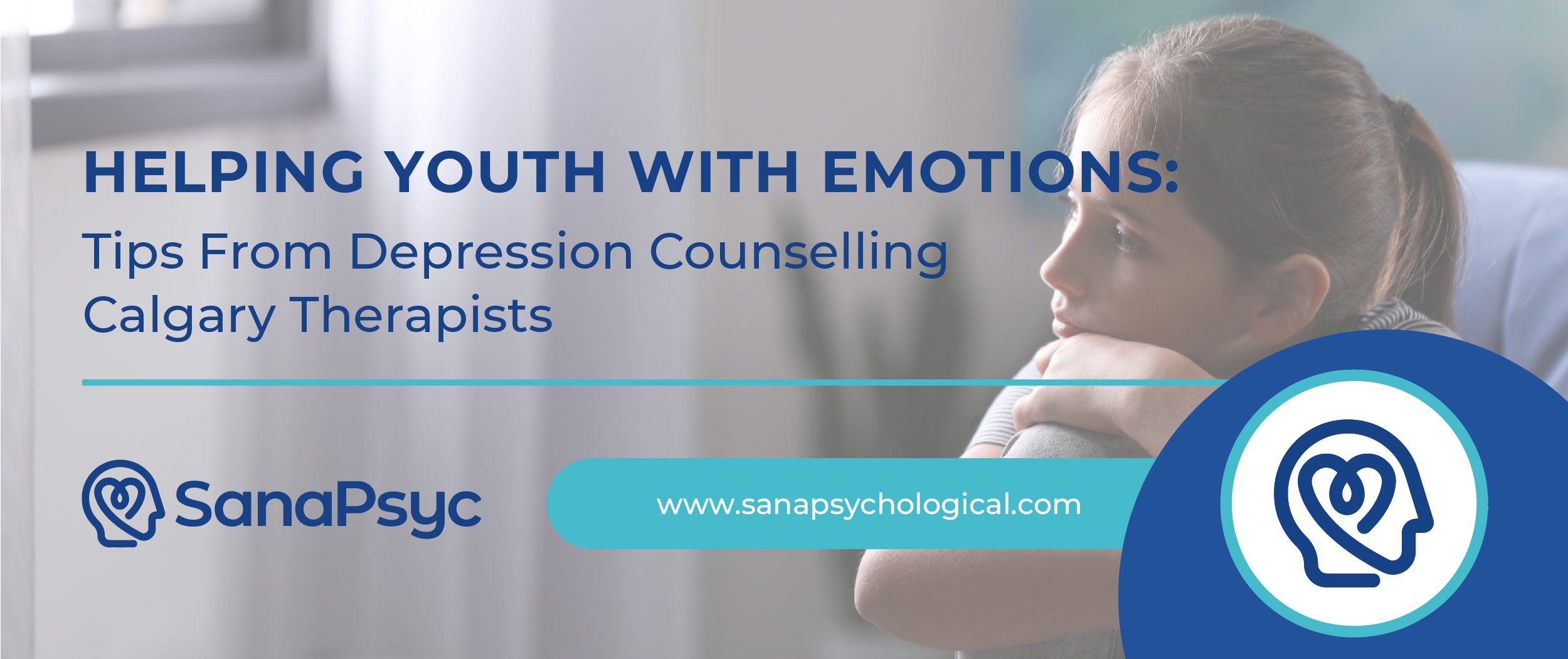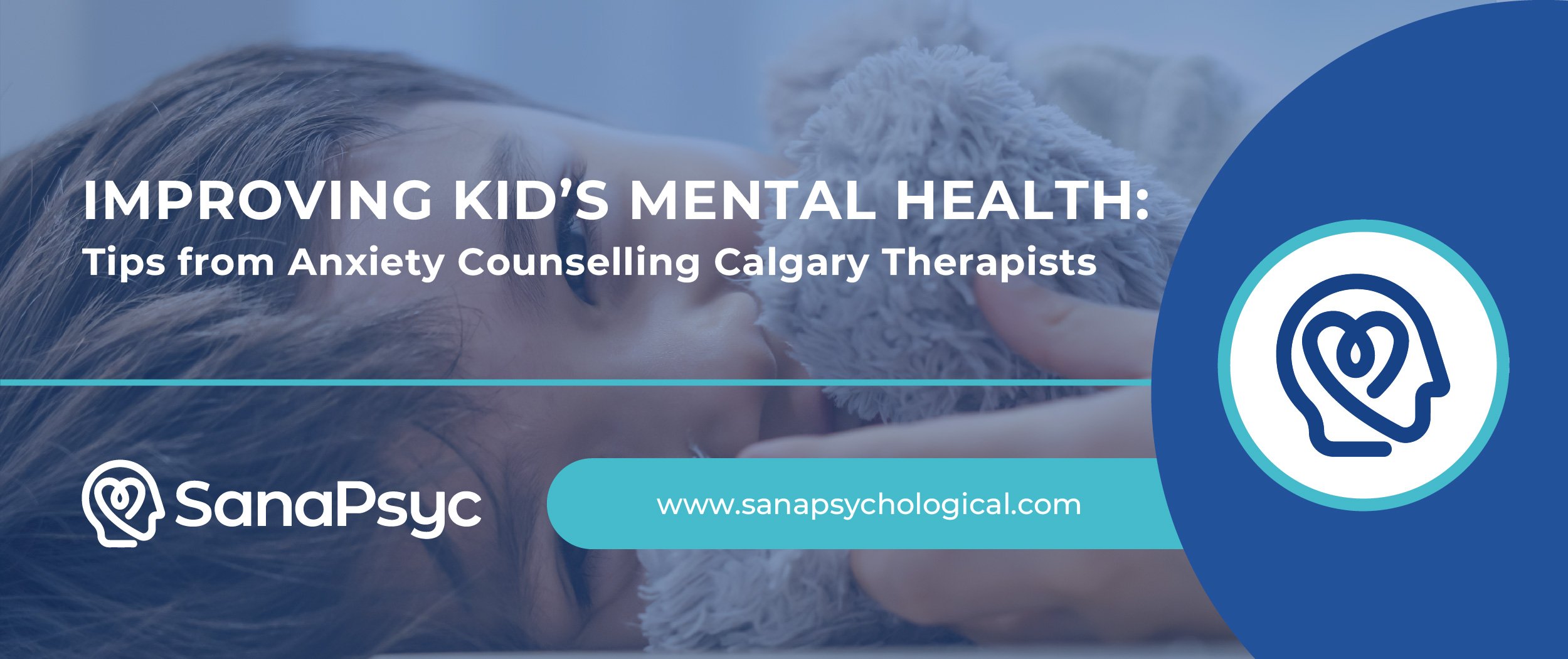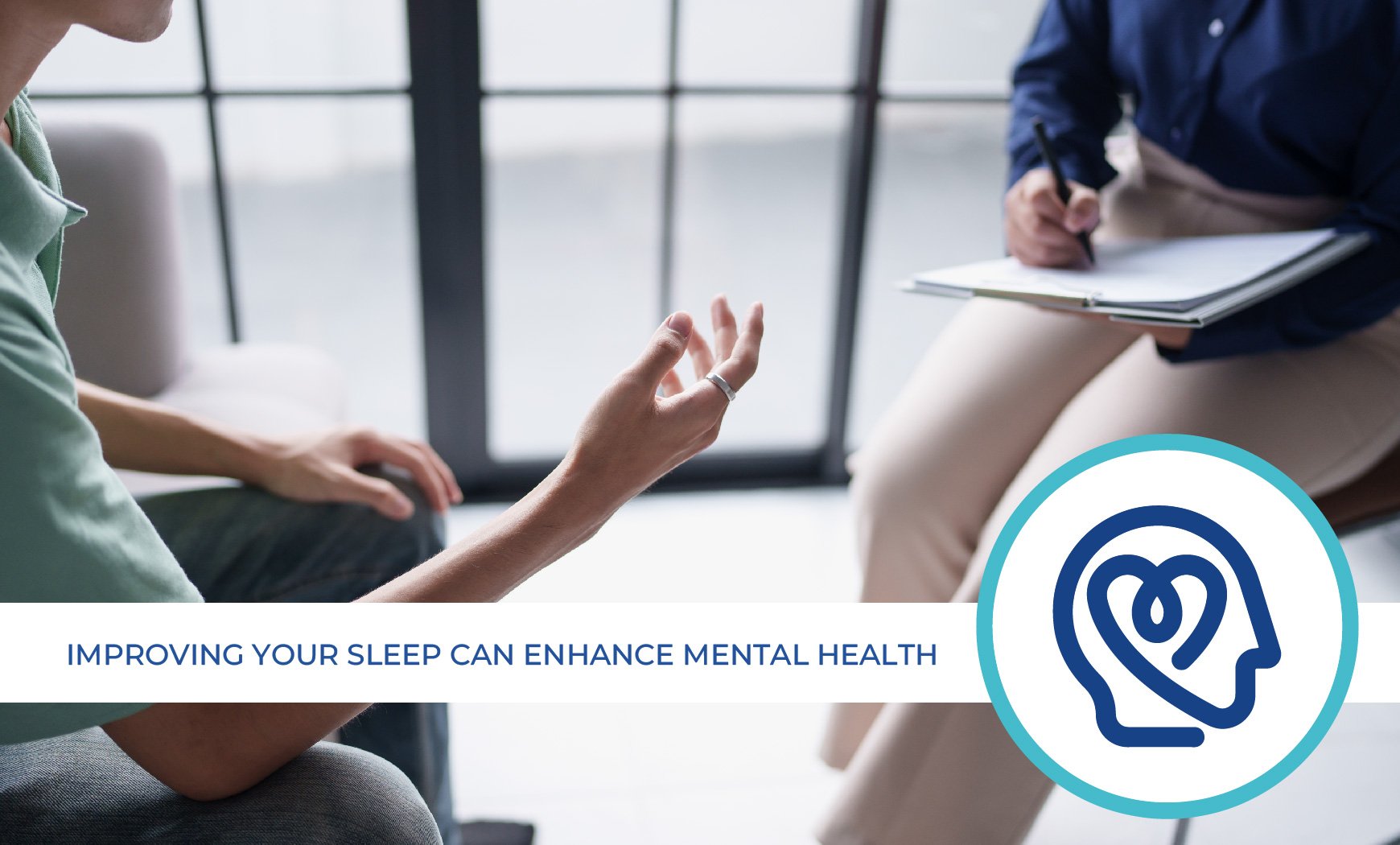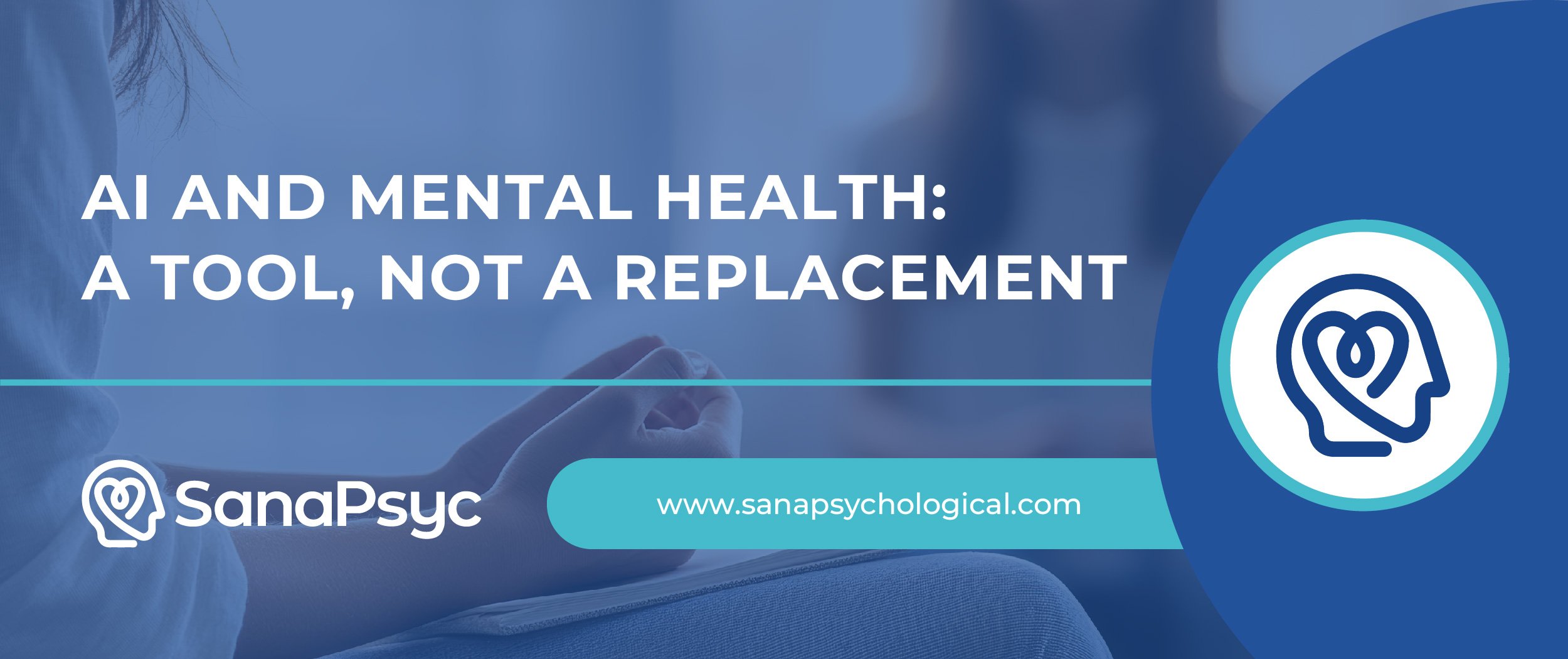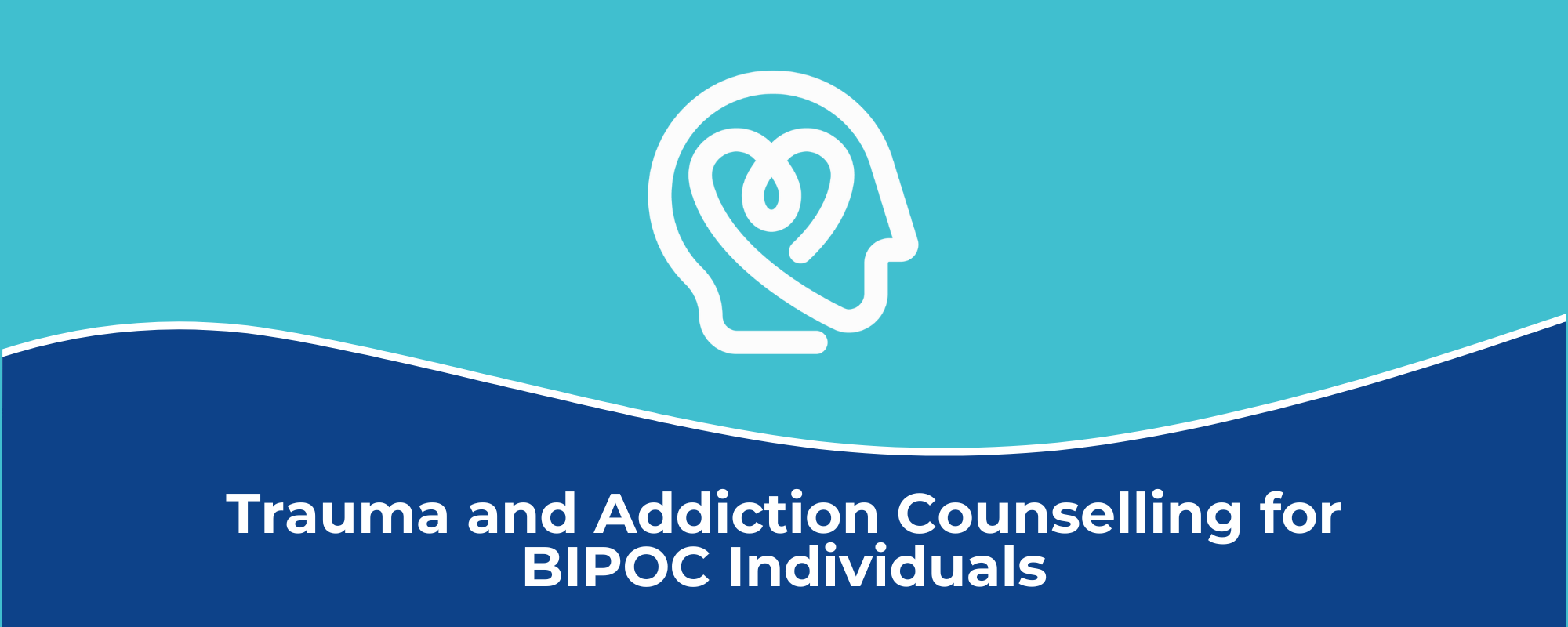Sana Psychological
Your Mental Health Counselling Services in Calgary, Airdrie, and Across Canada
Taking care of your mental health shouldn’t feel overwhelming. At Sana Psychological, we make it simple to access compassionate, professional counselling services designed to support you and your family.
New clients Are Always Welcome!
In-Person Sessions at our two convenient locations: Midnapore in SE Calgary and Downtown Airdrie.
Virtual Sessions available across Canada (availability varies by clinician).
Explore Our Calgary And Airdrie Addiction and Mental Health Counselling Services
-
Our mental health counselling services address concerns such as trauma, anxiety, depression, OCD, grief, ADHD, stress, and emotional regulation. Therapy is a safe space to process emotions, gain clarity, and develop tools to manage life’s challenges. Our clinicians use active, evidence-based approaches like Cognitive Behavioral Therapy (CBT) and Accelerated Resolution Therapy (ART) to help you achieve meaningful progress.
Mental health challenges can affect every aspect of life, from work to relationships. By working with our experienced clinicians, you can learn to manage symptoms, build resilience, and feel more in control of your emotions and daily experiences. Whether you’re dealing with chronic stress, navigating a major life transition, or simply feeling stuck, our counselling services are here to guide you toward better mental health.
-
Addiction counselling at Sana Psychological provides support for virtual, Midnapore and Airdrie addiction and mental health concerns including alcohol use, gambling, eating disorders, and codependency. Through one-on-one sessions, we help you understand your behaviour patterns, identify triggers, and develop strategies to break free from unhealthy cycles. Initial appointments focus on understanding your unique challenges and creating a plan tailored to your needs.
Struggling with addiction can feel isolating and overwhelming. Our clinicians are here to provide a judgment-free space where you can explore the root causes of your behaviours and gain the tools needed to create lasting change. Whether you’re just beginning to recognize a problem or have tried to make changes before, we’ll support you every step of the way.
-
Strong relationships are built on trust, communication, and mutual understanding. Our couples and family counselling sessions help improve communication, resolve conflicts, and strengthen bonds. Whether you’re navigating co-parenting, intimacy challenges, or family transitions, we’re here to support your journey together.
Family dynamics and relationships can be complex. Counselling offers a safe space to address underlying issues, improve interactions, and build healthier patterns for the future. For couples, therapy can reignite intimacy and foster a deeper connection. For families, it can bring clarity and harmony to relationships that feel strained or disconnected.
What Makes Sana Psychological Different?
Empathy at the Core: We meet you where you are, providing a non-judgmental space to explore your thoughts and feelings.
Active and Engaged Therapy: Sessions are designed to be interactive, offering practical tools and actionable strategies you can use in your daily life.
Holistic Approach: We consider all aspects of your well-being, including physical, emotional, relational, and cultural factors.
Broad Accessibility: Serving clients in Calgary, Airdrie, and virtually across Canada, we’re committed to making counselling accessible for everyone.
Sana Psychological stands out because of our dedication to combining evidence-based practices with a deeply empathetic approach. We understand that mental health challenges are deeply personal, and we work to create a space where you feel heard, respected, and empowered to make meaningful changes in your life. Our hybrid counselling model allows us to tailor each session to your preferences, whether you prefer in-person interaction or the convenience of virtual sessions.
A Word From Paige: Founder of Sana Psychological
Why Choose Sana Psychological?
Your mental health matters, and we’re here to provide the care and tools you need to thrive. Here’s why Sana Psychological is a trusted choice:
Tailored Care: We understand that every person’s journey is unique. Our counselling is personalized to meet your specific needs and goals.
Comprehensive Services: From trauma and anxiety to ADHD, relationships, and addiction, we cover a wide range of concerns for individuals aged 5 and up.
Expert Clinicians: Our team uses evidence-based therapeutic modalities, ensuring effective and lasting support.
Flexible Options: Access care in-person or virtually, making it easier than ever to prioritize your mental health.
Here to support you: meet the Sana Psychological Team
Ready to Begin?
Taking the first step toward better mental health can feel daunting, but we’re here to make it easier. Book your appointment today and start your journey toward a healthier, happier life. Here’s how to get started:
Book Online Anytime: Schedule your session with ease; no referral is needed.
Explore Our Free Resources: Gain insights and tools to support your mental health journey.
Contact Us: Have questions? Reach out to our intake coordinator for guidance.
Your mental health is our priority. Let’s take the journey together.
At Sana Psychological, we believe in the power of change through support, awareness, and action.
How Our Calgary And Airdrie Addiction and Mental Health Counselling Services Help
Personalized Support
Our team takes the time to understand your unique challenges, strengths, and goals. This personalized approach ensures that every session is meaningful and relevant to your journey. If you are looking for the best psychological services Calgary, we are here to help
Practical Tools for Real-Life Challenges
Counselling isn’t just about talking—it’s about learning and applying tools that make a tangible difference in your life. From mindfulness techniques to cognitive restructuring, we provide strategies you can use immediately.
Evidence-Based Techniques
We draw from proven therapeutic approaches like CBT, DBT, ART, EMDR, and more to address a wide range of concerns effectively, making us a top choice for the best psychological services Calgary.
Long-Term Growth
While some sessions may focus on immediate concerns, our goal is to equip you with the skills and resilience needed for sustained mental health and well-being.
A Collaborative Partnership
Your journey is a partnership. We collaborate with you every step of the way, ensuring that your voice and preferences guide the process.













